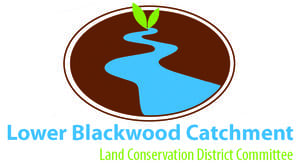Stage 1 of this project has now been completed. Please scroll down for project results. The project page for Stage 2 can be accessed here.
Demonstrations are now underway in Warner Glen to investigate some commonly used fertility program approaches. Three different programs and a control will be implemented on replicated, randomised strips.
- Program 1 will be based on DPIRD fertiliser calculations and agronomist recommendations. It will involve pH adjustment and seasonal NPK and S applications with granulated fertilisers as informed by soil and plant testing.
- Program 2 will also follow agronomist recommendations and be based on the balancing of soil base saturation percentages and the application of organic fertilisers as determined by soil tests, as well as treatments with bio-stimulants.
- Program 3 will follow agroecological recommendations and involve a range of strategies to try and improve nutrient use efficiency including pH adjustment, biological and nutritional planting furrow treatments, combining fertilisers with carbon sources and/or bio-stimulants, and the application of foliar nutrient sprays, informed by soil and plant tests.
The strips are 25m wide as the spreader throw and the boom spray both cover a width of 24m. A traffic lane has been established down the centre of each strip with side lanes to enable access to the different strips.
A range of data will be collected over the growing season including biomass production, forage quality and assessments will be carried out on soil and plant characteristics. At the end of the project the data will be presented with a focus on the cost and benefit of each program, and to identify any outcomes that warrant further investigation.
Project Results:

This Lower Blackwood LCDC project is hosted by Dairy Farmers Neville, Gary & Elaine Haddon and is led by consultant & agroecologist Mark Tupman of Productive Ecology with assistance from agronomist Anthony Quinlan of Soil Dynamics, and agronomist Graham Mussell of Graham Mussell Consulting.
The project is supported through funding from Soil Wise. Soil Wise is funded by the National Landcare Program Smart Farms Small Grants – an Australian Government initiative. It is supported by Healthy Estuaries WA – a State Government program



